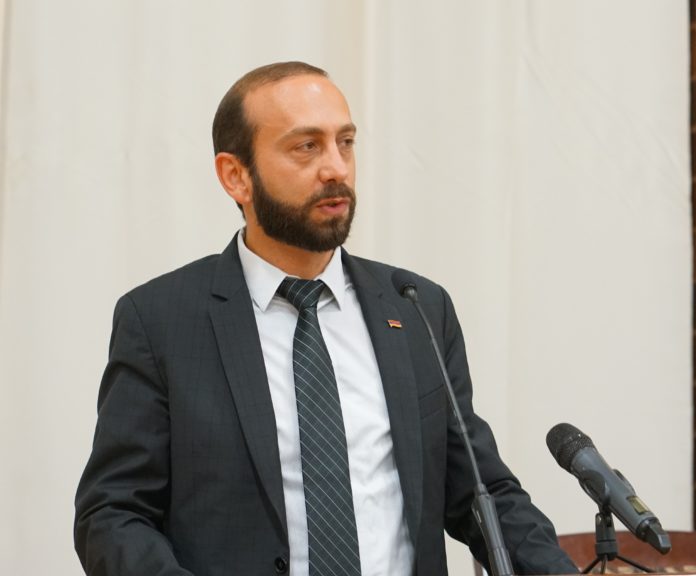CAMBRIDGE, Mass. — Ararat Mirzoyan, the speaker of the National Assembly and its leader, recently concluded a tour of the US with Deputy Prime Minister Tigran Avinyan.
On Saturday, July 20, during his stay in Boston, Mirzoyan sat down for a press conference with staff of Armenian newspapers in the Boston area, the Armenian Mirror-Spectator, Hairenik and the Armenian Weekly, at the Sheraton Commander Hotel.
During a lengthy talk, Mirzoyan, 40, spoke about his background, his goals for Armenia as well as the results of the tour of the US.
His affinity with the US goes back a long way. He is a historian whose doctorate was on the official recognition of the Armenian Genocide in the US from 1915 to 2003. He also worked for a time at the Armenian Genocide Museum and Memorial, under the leadership of Lavrenti Barseghyan. His master’s degree focused on the defense of Van and Vaspurakan.
The transition from academic to member of government was fairly smooth.
While he was finishing his doctorate at Yerevan State University, he was active in student politics and in 2004, was one of the organizers of large-scale anti-government protests.










